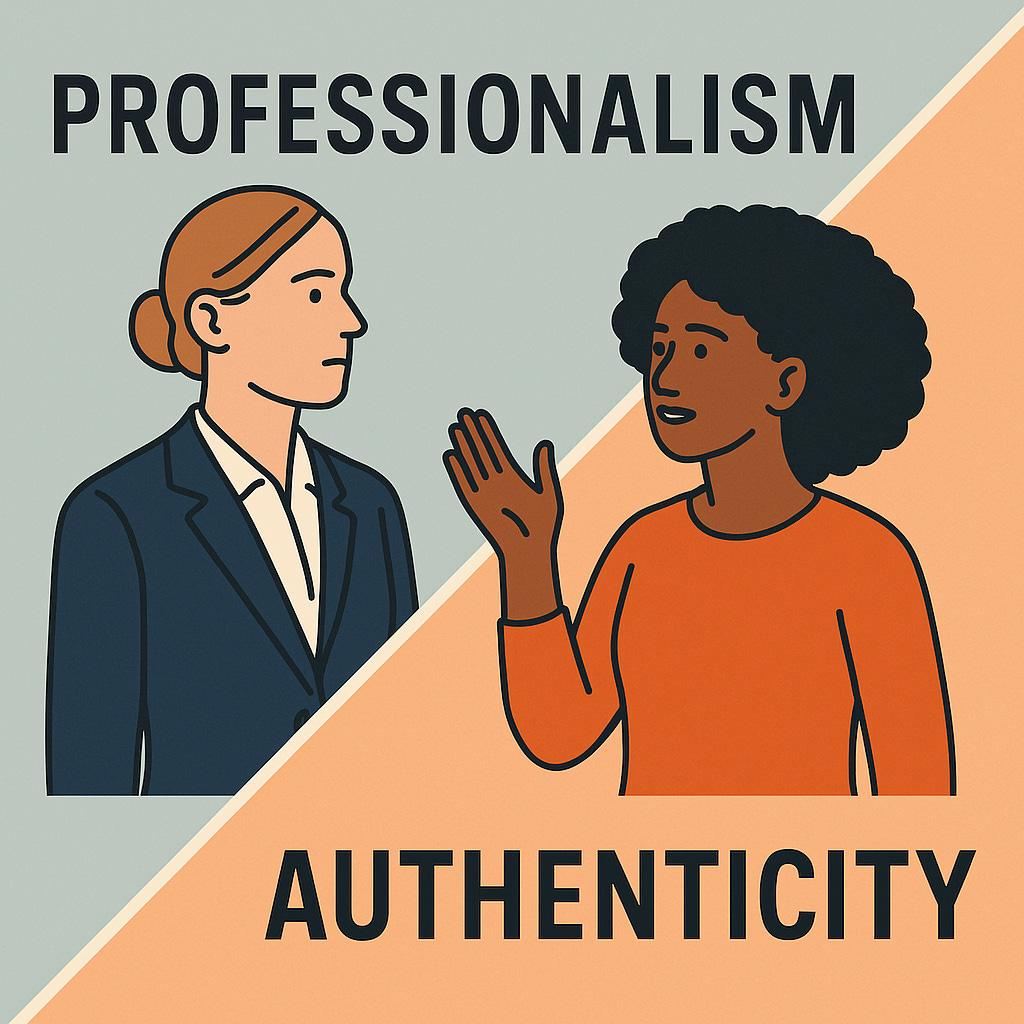Ever felt like you just don’t quite fit into what people call “professionalism”?
Maybe it’s the way you talk, the way you dress, or just the way you carry yourself. No matter how hard you try, it feels like you’re playing by someone else’s rules. You’re not imagining things. Professionalism isn’t just about doing a good job—it’s a set of unspoken expectations rooted in specific cultural norms. These norms are not neutral; they were developed to benefit particular groups—primarily those aligned with Western European traditions—and marginalize others, especially along racial, class, and gender lines.
Professionalism and European Cultural Standards
The dominant standard of professionalism in the U.S. has been shaped by Western European ideals—particularly those of the upper-middle class. These ideals emphasize a polished appearance, subdued emotional expression, indirect communication, and adherence to hierarchical norms. Scholars have noted that these frameworks were exported through colonialism and industrial capitalism and then solidified in modern corporate culture (Gray, 2019)
This alignment with European norms plays out in subtle and explicit ways. Black professionals, for example, are disproportionately penalized for wearing their natural hair in styles such as afros, braids, and locs, which have often been labeled as “unprofessional.” This discrimination has been so widespread that states have passed legislation like the CROWN Act to prohibit hair-based racial bias (Economic Policy Institute, 2023).
Language is another gatekeeper. Speakers of African American Vernacular English (AAVE), Chicano English, and other culturally rooted dialects are frequently encouraged—or required—to “code-switch” to Standard American English to be seen as competent or professional. This demand not only reflects a bias toward European-American linguistic norms but may also reinforce classist and racial hierarchies.
The Changing Face of Workplace Behavior—Or Is It?
In recent decades, the values of corporate culture have shifted away from overtly masculine traits like dominance, competitiveness, and directness toward traits more often associated with emotional intelligence, harmony, and flexibility. While this could be seen as a positive turn, it still reflects a normative framework—one that privileges people who can perform this version of emotional fluency, which is itself culturally coded.
For example, assertive communicators—often men or working-class individuals—may now be labeled as “aggressive,” whereas indirect or deferential communication styles are rewarded. This shift doesn’t remove bias; it just relocates it to a new set of norms, which still disadvantage many people. It doesn’t necessarily create equity—it reshapes the hierarchy.
Professionalism as a Tool of Control
Professionalism has always functioned as more than etiquette; it’s a system of social regulation. It governs everything from speech and clothing to facial expressions and emotional tone. Those who don’t—or can’t—follow these unwritten rules risk being labeled unprofessional, difficult, or not a “culture fit.”
This form of control disproportionately impacts those from non-dominant groups—particularly immigrants, and the working class—who are implicitly or explicitly asked to shed parts of their identity to gain acceptance. Scholars like Tema Okun argue that this push toward assimilation upholds white supremacist cultural values, even in well-meaning, “diverse” institutions (Okun, 2001).
So What Should Professionalism Really Mean?
We need to abandon the myth that professionalism is a neutral or merit-based system. It’s not. It was designed within a Western European framework to standardize behavior and productivity in a way that maintains power for those who already have it. If we truly value equity, then our conception of professionalism must be radically reimagined.
That reimagining would prioritize the substance of someone’s work, not whether they fit into culturally specific norms about tone, attire, or speech. A just version of professionalism would be expansive enough to accommodate different cultural expressions, linguistic styles, emotional ranges, and body types. It would value authenticity and collaboration over assimilation and quiet compliance.
That’s not just an HR initiative—it’s a vision for a better future.
More References:
https://www.epi.org/publication/crown-act/
https://uproottalent.co/decolonizing-professionalism/
https://daily.jstor.org/how-natural-black-hair-at-work-became-a-civil-rights-issue/
https://ssir.org/articles/entry/the_bias_of_professionalism_standards




